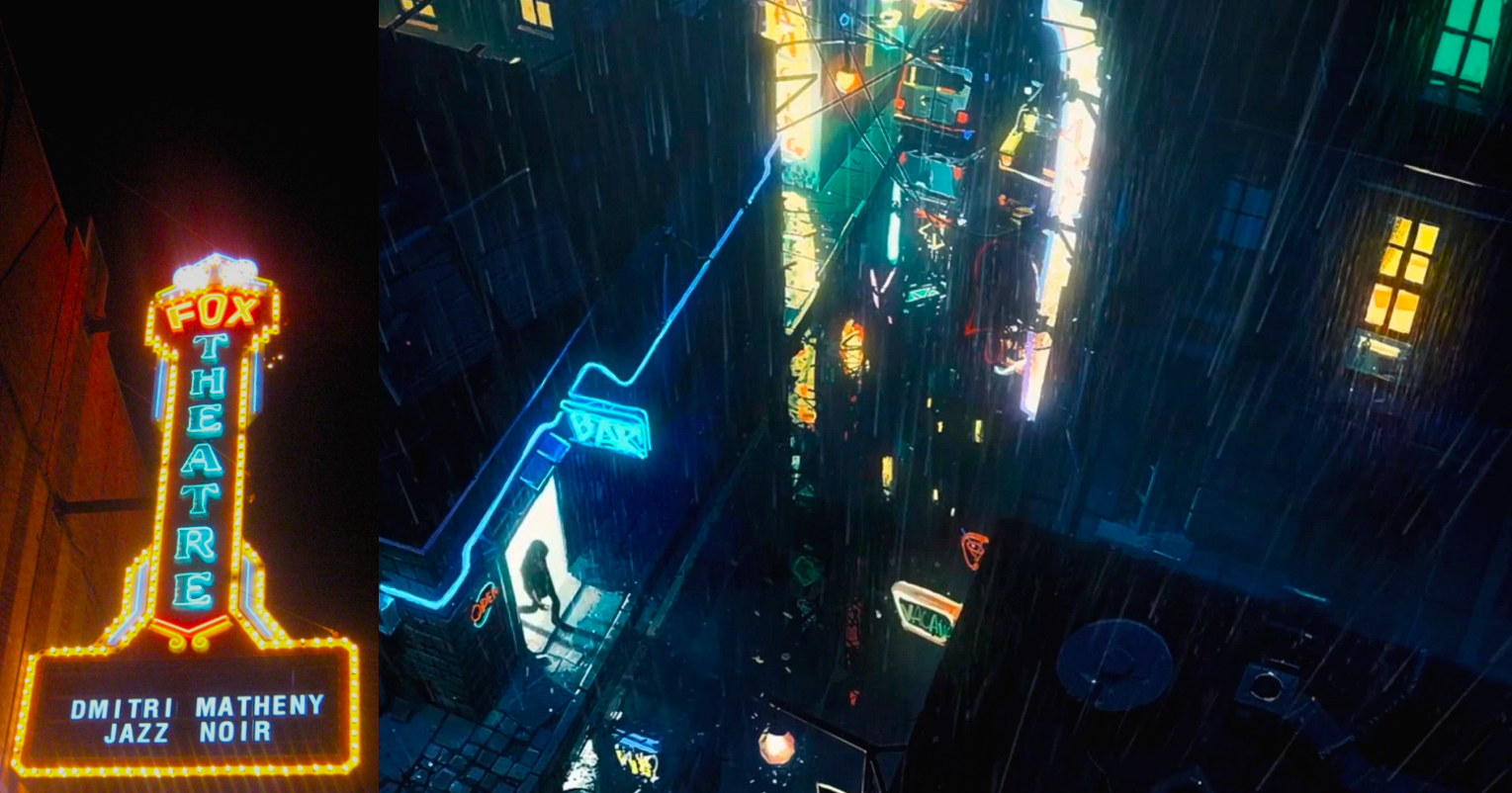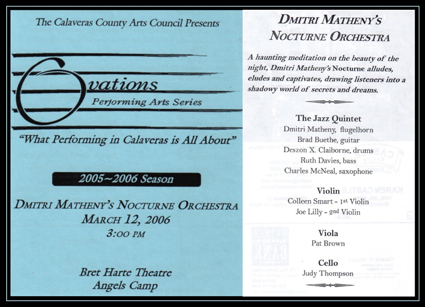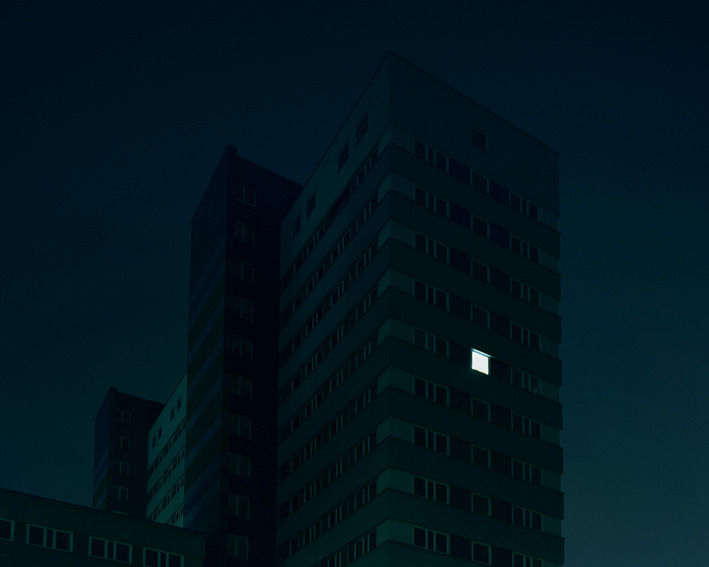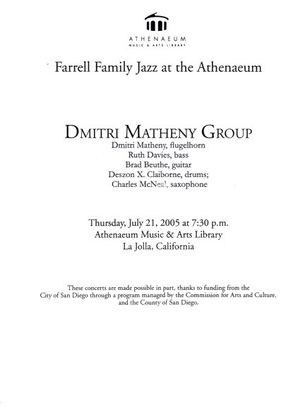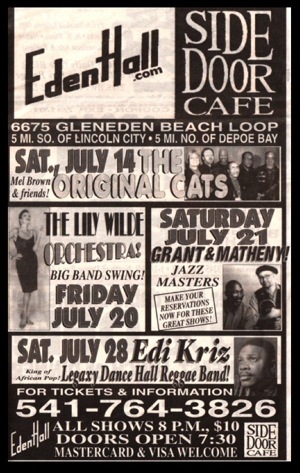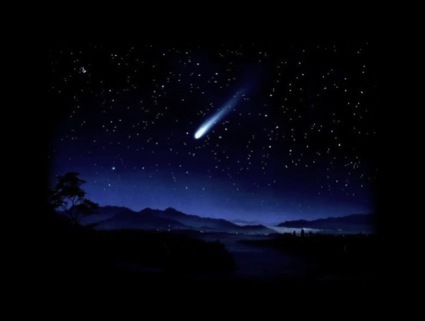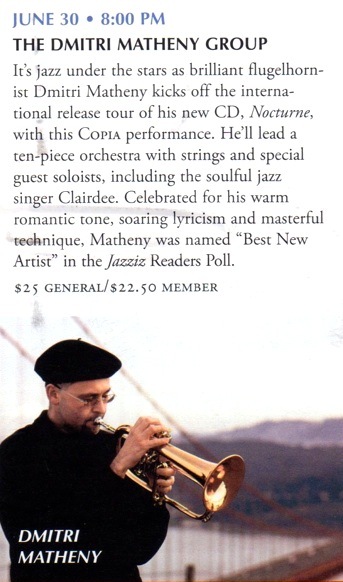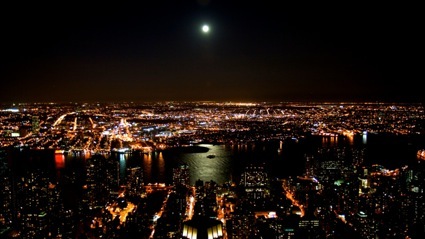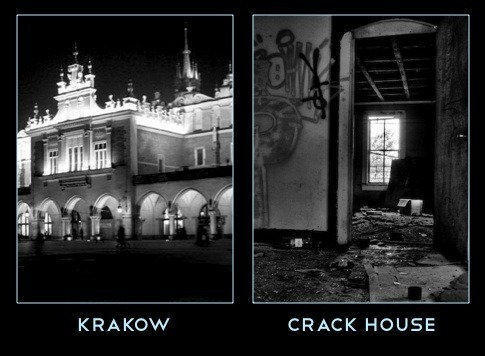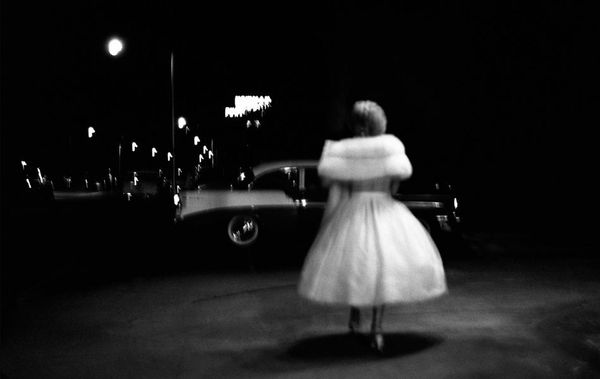Ask people to name a musical instrument synonymous with film noir, and it’s a safe bet no one will say the flugelhorn, the ax of choice for my man, Dmitri Matheny. It’d be the saxophone, by a landslide. Which is strange, because sax barely figures in scores from the classic era of film noir, roughly 1944-54. Orchestral strings set the tone, in the work of such geniuses as Miklós Rózsa (Double Indemnity), Franz Waxman (Night and the City), and Roy Webb (Out of the Past).
People hearing that saxophone aren’t wrong, however. It’s an understandable misconception, based on how the elastic notion of noir was integrated and adapted into the cultural bloodstream by crime writers, film and television producers, and jazz musicians. It’s a dark and twisted road that’s led us from The Killers (Rózsa, 1946) to Odds Against Tomorrow (John Lewis, 1959) to Taxi Driver (Bernard Herrmann, 1976) to Mulholland Drive (Angelo Badalamenti, 2001). In the roadhouses along the way, combos and arrangements have constantly changed—but the song has remained the same: you suffer for your desire … so you may as well suffer with style.
Dmitri Matheny and I charted this route years ago when we collaborated on a “Jazz-Noir” film series for SFJAZZ, which drew on our respective knowledge of music and film. I came away from the experience with a keener insight and deeper appreciation of the scoring of many favorite films. If our conspiracy struck the spark for this album, I’m proud of the small role I played and thrilled that you get to reap the benefit. I’m just tickled to be name-checked (between Herb Caen and Tony Bennett!) in the album’s centerpiece, “Crime Scenes,” a 12-minute suite that delves into the sexy and sinister side of San Francisco, featuring some amusingly “hard-boiled” spoken-word poetry, including a dame who will “draw a chalk outline around your heart.” It pays loving, backhanded tribute to my hometown, and local sleuths ranging from Sam Spade (The Maltese Falcon) to Mike Stone (The Streets of San Francisco).
That’s what I love about Dmitri’s take on noir—it travels the whole route, reaching back to caress the sinuous notes of the venerable “Caravan,” a Juan Tizol composition from 1936 made famous by the Duke Ellington Orchestra, then tracing that sultry promise forward to find Audrey Horne slinking around in shrouded rooms to Badalamenti’s score for Twin Peaks. In these grooves (can’t help it, grew up in a vinyl world), Matheny leads his crack crew through a sonic history of noir, with nods to composers ranging from Harold Arlen to Lalo Schifrin.
The opening “Noir Medley” weaves together unforgettable swatches of scores by Henry Mancini (Touch of Evil), Jerry Goldsmith (Chinatown), David Raksin (Laura), Bernard Herrmann (Vertigo, Taxi Driver) and Harold Arlen (Blues in the Night), and instantly proves that, yes, the flugelhorn can evoke— perfectly—the nocturnal longing of the best noir.
Matheny crafts an eight-minute Gold Medal paperback out of poet Dana Gioia’s “Film Noir,” a pungent roux of small-town trouble straight out of Black Wings Has My Angel, featuring a discontented dame who, “if she shot you dead would finish your drink.”
The extra kick in this road trip is the juxtaposition of venerable jazz standards (“Stormy Weather,” “Estate”) with unexpected, underappreciated gems such as John Williams’ gorgeous “The Long Goodbye,” composed for Robert Altman’s 1973 revisionist take on Philip Marlowe, and Stevie Wonder’s “Golden Lady,” from the same year. (If you don’t think “Golden Lady” is noir, revisit the lyrics: the poor sap is dying to sell his soul for his dream girl.)
Other surprises: a haunting version of Polish composer Bronislaw Kaper’s High Wall, the title theme for the 1947 Metro-Goldwyn-Mayer noir of the same name, and the band’s jaunty exit with “What Now My Love?” French composer Gilbert Bécaud’s renowned 1961 hit, covered by everyone from Shirley Bassey to Sonny and Cher, Herb Alpert and the Tijuana Brass to Elvis Presley.
Especially poignant for me is Matheny’s cover of Charlie Haden and Quartet West’s 1995 “Here’s Looking at You,” itself a tribute to the classic noir films that inspired Quartet West’s rich, romantic sound. It’s a beautiful, elegiac nod to a recently fallen comrade.
Like Haden, Dmitri Matheny is an artist who manages to find beauty blooming in the darkest corners. He’s a good man to have along if you’re planning a long drive through an uncertain night.
—Eddie Muller
Known internationally as the “Czar of Noir,” Eddie Muller is a writer, producer and impresario. He is the founder of the Film Noir Foundation, which rescues and restores at-risk noir films from around the globe, and producer and host of San Francisco’s NOIR CITY, the largest festival of film noir in the world (now with seven satellite festivals around the U.S.). He frequently appears on Turner Classic Movies, and has lectured on film noir at the Museum of Modern Art in New York and the Smithsonian Institution in Washington, DC.








